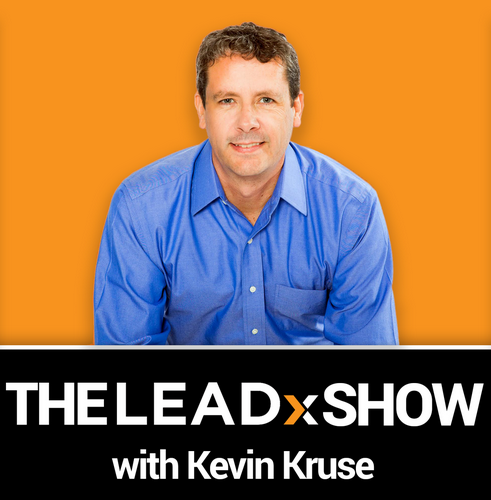

click below to listen
In this episode, we’re going to talk about what gets between you and your greatness with our guest, Lolly Daskal. She is the founder of Lead from Within, a global leadership coaching and consulting firm based in New York City. She has been named a Top 50 Leadership Expert and a Top 100 Leadership Keynote Speaker. You may have already read her work on Inc.com, Fast Company, or the Huffington Post. Her new book is The Leadership Gap: What Gets Between You and Your Greatness.
Resources:
https://www.lollydaskal.com/ – Lolly’s Website
@LollyDaskal – Lolly on Twitter
Pre-order her book before May 16 and get a $97 assessment for free – https://www.theleadershipgapbook.com/
Are you a rebel? A hero? A navigator? Or something else?
If, as a leader, you’ve ever had a moment of self-doubt or uncertainty, then you may have accessed one of your archetypes. In any given situation, we can spring into action and either try to “fix” the problem or take control, neither of which are beneficial to leading a team. Finding your archetype can help you approach your weaknesses and address them head on.
Kevin Kruse and Lolly Daskal On Forbes
Lolly Daskal is the founder of Lead From Within, a global leadership coaching and consulting firm. Her new book is The Leadership Gap: What Gets Between You and Your Greatness. I recently interviewed Lolly on the LEADx podcast, and delved into her thoughts on archetypes and how to approach them. (The interview below has been lightly edited for space and clarity.)
Kevin Kruse: What are archetypes, and why are they so important?
Lolly Daskal: An archetype is a persona that is within us. It’s something that we can identify. It’s the Hero’s Journey talks about journey that we take within ourselves, that from birth until death, and all of us go through certain stages―what I call, in my profession―until we reach greatness, until we reach meaning, until we reach purpose. The thing about this book, I would like to emphasize, is that not only does it talk about archetypes, but I lace it with Jungian work.
And Jung’s work is about shadow work. So for every archetype which will get you to greatness, I actually talk about how the same archetype, the same greatness, can cause a gap, can keep you from that success, and can keep you from your greatness. By combining the work of Joseph Campbell, and by combining the work of Jung, it really gives you like an insight to who you are on a level that most people don’t have.
Kruse: Will you share several of these archetypes with us?
Daskal: Absolutely. I want to talk about two in particular, because these two show up in every single individual that is high-achieving. So if you’re out there wanting to have a successful business, if you’re a leader leading thousands, if you’re someone who has a startup who wants to make a significant difference in a business, you’ll identify. I mean, you’ll identify with all seven archetypes, but let’s talk about one in particular.
The first archetype of the RETHINK Model, because it spells out ‘rethink’. Each one stands―like you talked about in the beginning of the show―the Rebel, the Explorer, the Truth-teller, the Hero, the Inventor, Navigator, and Knight, but let’s talk about the ‘Rebel.’
For every rebel that is out there who wants to make an impact in the world, who wants to make a difference in the world in a big way, they need the characteristic of confidence. They need to be able to be extremely competent and confident in order to make that happen. For every single rebel that we meet, within them, there is a gap. The gap is of someone who feels like an imposter who has self-doubt.
It sounds like this. “If they only knew how I’m not as smart as they think I am, I’m in trouble. I don’t deserve to have this position. I didn’t go to the best schools. I don’t know why I’m leading them. There’s so many smarter people in this room. Why am I doing this?” Every single person has within them something that has self-doubt about themselves, and this gap can actually cost you in your greatness, so we have to learn how to leverage it. In the book, it talks about how to leverage your gaps. It’s not about only identifying them, but what to use and what to do about the fact that you feel like an imposter.
The second archetype is the ‘Navigator.’ A navigator is someone who’s really good at steering people, and guiding people, and they’re great at problem-solving. They’re fantastic at being pragmatic and practical. And, because they are that great at solving problems and challenges, people trust them. They tend to want to gravitate towards them. But for every navigator that exists, there is a gap. This gap, I think, most people will recognize within themselves, and the gap is, ‘The Fixer.’
When someone comes to the fixer and says, “Oh, I have a problem,” they jump in immediately and say, “Oh, you have a problem? Do this, do that, why didn’t you do this? Last week I did it and it worked. Why aren’t you doing it this week?” It’s someone that is constantly trying to fix people, and when you’re trying to fix people, guess what? You come across as arrogant. People don’t want to be fixed. We know this in our relationships. We know this in our partnership and leaders need to understand–to fix someone is not the way to empower them or engage them. So, knowing the difference between the greatness and the gap is imperative to having a really, truly magnificent life, a meaningful life, and a purposeful life.
The challenge for all of us, and for myself, is always, “Who am I being? Am I standing in my greatness?
Kruse: How do we build upon our archetype?
Daskal: Let’s take the last one, the ‘Navigator.’ If you’re finding that you tend to show up more as a fixer, let’s talk about four very significant ways that you can leverage it. The first way is to find out why you are the fixer. Why do you need to fix people? It has to start from within, right? You have to find out what drives you to fix people? Secondly, you should think about a fixer as somebody who likes to be a chronic rescuer. They like to rescue other people. The question is, “If you are rescuing others, are you truly empowering them the way they need to be?” So, it’s kind of like, you want to fix to help, but are you really helping them? Because, someone who is chronically rescuing others is not really helping them, is not really empowering them. The next one is fixers–they want control. They want to be able to control situations. They don’t like when things are out of control. So, the question is, “What about control and letting go of control is something that you need to work on?”
One of the archetypes, in particular, is the ‘Explorer.’ For the explorer, the way they truly learn to explore in a magnificent way is to trust their intuition instead of having to control things. I always say to the fixer, “What can you let go of to let come in?” Because you don’t want to be known as the controller or the micro-manager.
The last one is, this is very… We see this all the time. A fixer is a caretaker. They care about people. “I want to help you. I want to make you feel better,” but sometimes, the caretaker is really stepping over boundaries.
So, this is what I do with my fixers. I give them a little formula to remember. It sounds like this: If someone comes to you and says, “Oh, I have a problem.” Listen to what the problem is. “Do you think you could help me solve the problem?” That means, show up, as someone who we would call ‘The Fixer,’ but be very mindful of what people are saying. Most of the time, I would say, a good 80% or 85% of the time, they just want to talk. They just want someone to listen, and when they’re telling you about their challenges, listen to what they say. Don’t show up as the fixer because guess what? On a certain level, you look arrogant and that’s the last thing we want to do.
Kruse: I always like to challenge our listeners to become 1% better every day. Is there something from your work on archetypes, that you can challenge us to take away try today?
Daskal: One of the things that I want to talk about before I challenge anybody is I think this is very, very important for people to realize: I read a book a day. I read on the subjects of leadership and business, and it’s been a practice for 27 years. So most of the books that are out there, seem to have a certain tone about how we should be doing things, where we should be doing things, when we should be doing things, and why we should be doing things. And, so the challenge that I bring to everyone is what’s in my book. What makes my book a little bit different than most of the other books is that it is about who you are being while you are living and leading.
If we can challenge ourselves to ask ourselves, “Who we are at any given moment?” Because, my archetypes are more situational than they are, as I call ‘a banner’ of who you are. They’re not a poster for who you are. So, you could be a rebel in one moment, and a hero at the next, and a navigator in the next moment depending on the situation that you’re in. The challenge for all of us, and for myself, is always, “Who am I being? Am I standing in my greatness? Am I standing in my gap?”
Of Lolly’s many awards and accolades, Lolly was designated a Top-50 Leadership and Management Expert by Inc. magazine. Huffington Post honored Lolly with the title of The Most Inspiring Woman in the World. Her writing has appeared in HBR, Inc.com, Fast Company (Ask The Expert), Huffington Post, and Psychology Today, and others. Her newest book, The Leadership Gap: What Gets Between You and Your Greatness has become a national bestseller.
Trackbacks/Pingbacks
[…] lollydaskal This post was originally published on this […]